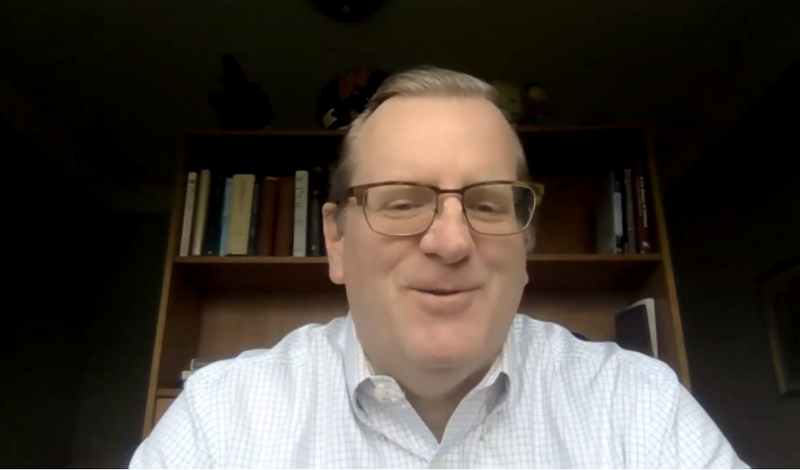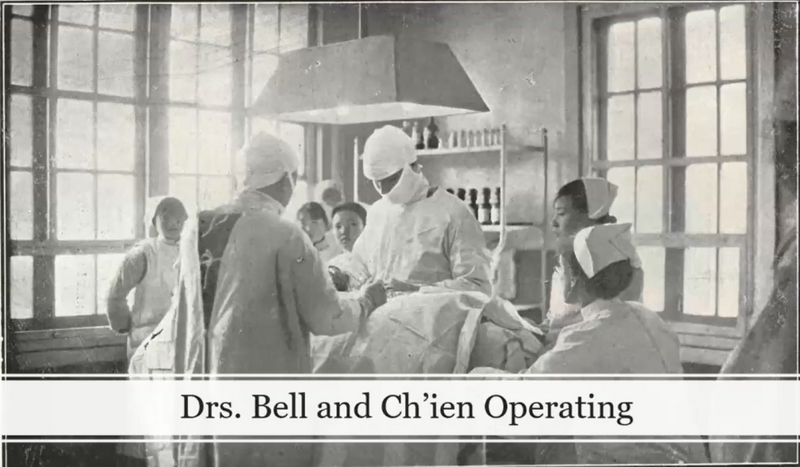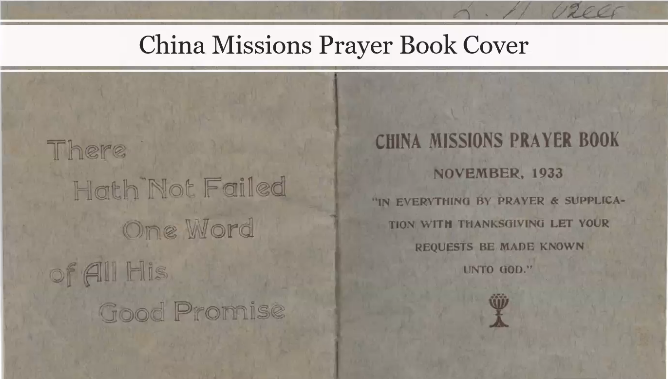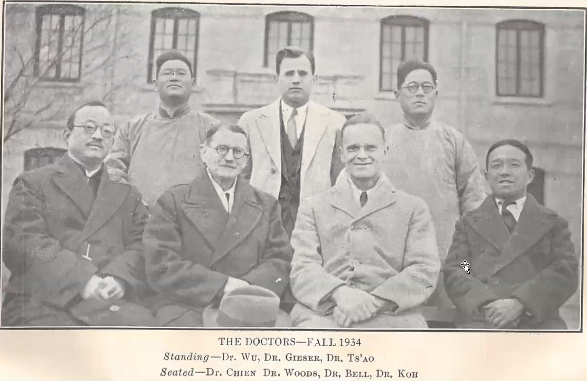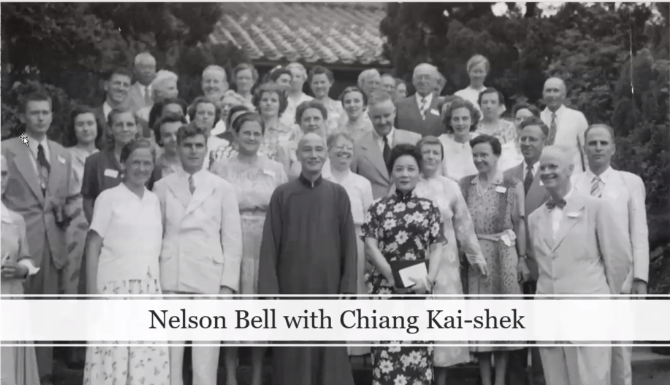Dr. Philip Ryken, president of Wheaton College, gave an online lecture recalling the stories of Dr. Nelson Bell, who served as a medical missionary to China.
Held by the Chinese Servant Leadership Center and the Global Servant Leadership Revival Platform, the 2023 Global Missionary Mobilization Conference in memory of Dr. Nelson Bell featured topics such as theological higher education, senior missions, digital mission ministry, the medical mission field, and the Israeli frontier.
“I’m grateful that you are celebrating the legacy of Dr. Nelson Bell. It’s important to honor our fathers and mothers in the faith,” Dr. Philip Ryken first told the participants. “We have his personal letters here at Wheaton College. If you ever get the chance, I warmly invite you to our campus.”
He invited Chinese Christians in China and overseas to visit the Billy Graham Museum and to utilize resources for research into the history of Christianity, including God’s work in China.
Born in Virginia in 1894, Dr. Nelson Bell was a Presbyterian missionary serving in China for 25 years. Dr. Bell worked at the Love and Mercy Hospital, then the world's largest Presbyterian hospital, and became the father-in-law of the late evangelist Billy Graham.
“His life and ministry gave us a lot of practical principles for following God today,” the Wheaton College president stated.
He recalled that Dr. Bell committed his life to Christ when he was 12 years old. When he was a teenager, Dr. Bell felt a strong call to be a medical missionary. He spent several years as a professional baseball player, and he learned teamwork. He was also a hard worker and a traveling salesman who sold clothing from place to place. In the process, he learned how to relate to a wide variety of people and how to persuade them.
“God didn’t waste our experiences but used them for kingdom purposes. In his later years, he became a salesman for the gospel,” Dr. Ryken added.
Then the Presbyterian missionary started his law studies at Washington and Lee University and transferred to the Medical College of Virginia to major in medicine. His classmates viewed him as a man of strong convictions and described him as a little too stubborn about his faith. During college, he organized prayer meetings called Morning Watch. Participants must promise, with God’s help, to “sanctify 20 minutes or one hour for prayer and Bible study.” Dr. Ryken explained that his commitment to prayer imitated his mother’s example. Dr. Bell was also active in his local church—he taught Sunday school to children and sang in the church choir.
In the meantime, his classmates adored him. “So he was strong in convictions but loving in relationships,” said Dr. Ryken.
Dr. Bell married Virginia Leftwich, and the newlywed couple arrived in China in 1916, during World War II. He was requested to help manage a mission hospital named “Love and Mercy Hospital” in the city of Tsingkiangpu, Jiangsu. “Tsingkiangpu had a population of 100,000, but the Love and Mercy Hospital served three million people.” Dr. Ryken said, “The staff of the hospital strongly proclaimed the gospel through words of truth and the demonstration of the gospel through the deeds of mercy. Every year it had an evangelism week—missionaries were invited to preach the gospel there. Dr. Bell also took every opportunity to share the gospel with his patients.”
During the lecture, Dr. Ryken showed historical photos from that time, including the cover of a booklet named China Missions Prayer Book in which western missionaries wrote down their prayer topics for the increase in the number of missionaries to be sent to cities and the growth of ministries.
As the administrator of the hospital, Dr. Bell worked diligently in the hospital and also worked in some other hospitals under the hospital’s network. Dr. Ryken shared his daily routine: “He (Dr. Bell) woke up early before 6 a.m. and prayed with the staff at 6:15 a.m. at the hospital. At 7 a.m., he went back home to have family devotions with his wife and five children. After breakfast, he had prayers with the servants at his home. At 8 a.m., there was a prayer service for the patients at the hospital. Following those prayer meetings, he would do his surgeries from 9 a.m. to noon. In the afternoon, he would have clinic hours, seeing patients who wanted to consult about their situation. In a typical month, the hospital would have 6,000 visitors come to the clinics. At the very end of the day, he would sit at the piano and sing a few hymns he loved.”
“While he was doing surgery, he would tell his secretary to encourage a missionary or write a letter to the government official as the hospital was having a problem with the electric power. Even though he was busy, he would talk with his patient about the way of salvation,” the lecturer continued.
“He also knew his limits. Dr. Gieser (who later became the chairman of the board of trustees at Wheaton College) remembered his words: ‘This is a bad case, and I am worried about the outcome. We just have to pray that God would help us through and everything will be okay.’”
Apart from his hospital work, Dr. Bell was loved by Chinese colleagues and respected by local officials for his judgment and expertise. Dr. Ryken showed a photo of Dr. Bell standing with Chiang Kai-shek and Madame Chiang at an occasion.
During his ministry in China, one of the Bells’ children died as a baby in 1925. Two years after the Japanese army invaded Tsingkiangpu in 1939, the Bells were forced to return to the United States in 1941 due to intense conflict and fighting in China. Back in the United States, Dr. Bell was elected to the Board of World Missions of the Southern Presbyterian Church and became a very close advisor to Dr. Billy Graham.

